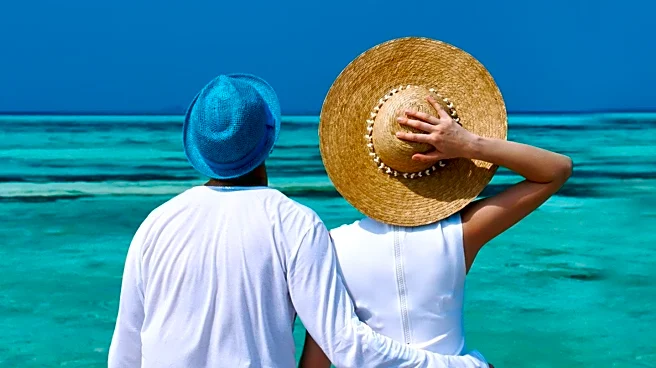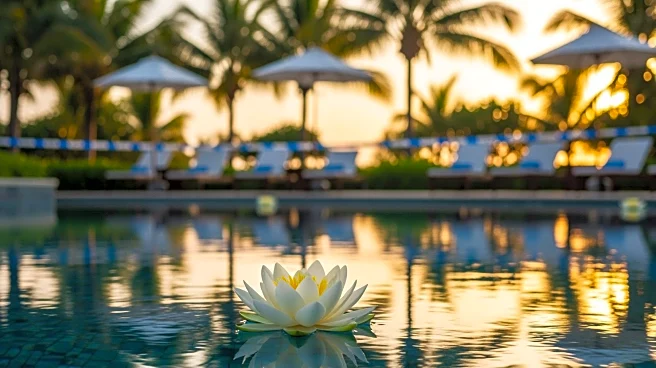What's Happening?
Leah Mackenzie and her husband Kyle have spent nearly a decade living aboard a sailboat, traveling the world to escape the pressures of modern urban life. Their journey, which began eight years ago, has taken them across over 30,000 nautical miles, including stops in the South Pacific and through the Panama Canal. The couple's lifestyle recently gained viral attention after Mackenzie shared their story on Reddit, highlighting their self-sufficient life at sea. They have made their boat, Jubel, a 44-foot center cockpit vessel, fully self-sufficient with solar panels, a lithium battery bank, and a water maker. Despite the challenges, including severe weather and mechanical failures, Mackenzie describes the experience as transformative.
Why It's Important?
This story highlights a growing trend of individuals seeking alternative lifestyles to escape the traditional work-life balance. By choosing to live at sea, Mackenzie and Kyle have redefined what it means to live freely, challenging societal norms about success and happiness. Their journey underscores the potential for self-sufficiency and the appeal of minimalism, resonating with those disillusioned by conventional living. The couple's experience also raises awareness about the practical and emotional challenges of such a lifestyle, offering insights into the balance between adventure and security.
What's Next?
The couple plans to continue their journey, with future destinations including Papua New Guinea, Indonesia, and Japan. They remain committed to their lifestyle until it is no longer enjoyable or feasible. Mackenzie has expressed a willingness to adapt, considering a return to the Pacific Northwest if the sea no longer calls. Their story may inspire others to consider alternative living arrangements, potentially influencing societal views on work, travel, and personal fulfillment.
Beyond the Headlines
The couple's journey also touches on broader themes of environmental consciousness and cultural exchange. By living minimally and traveling to remote locations, they highlight the importance of preserving natural environments and respecting diverse cultures. Their story may encourage others to consider the environmental impact of their lifestyle choices and the value of cultural understanding.









